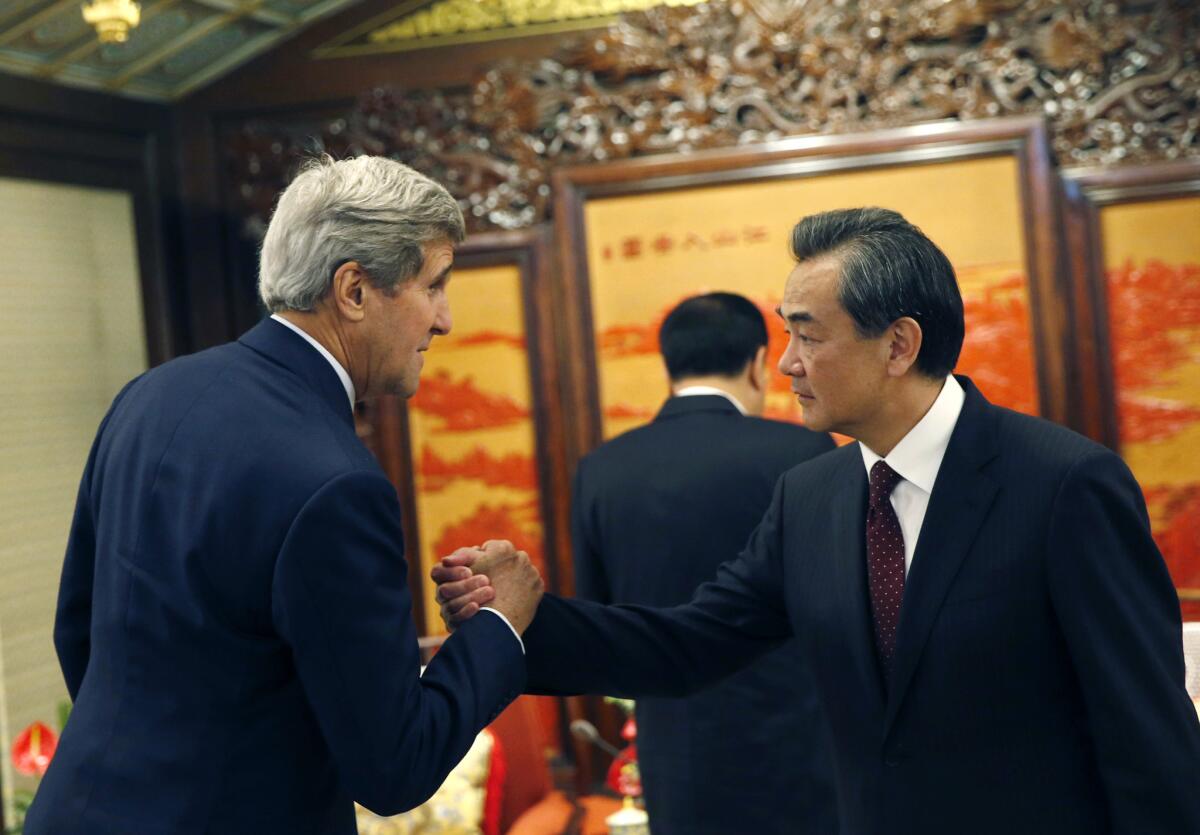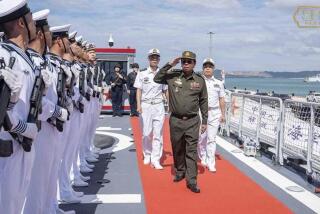South China Sea a friction point as Kerry meets counterpart in Beijing

U.S. Secretary of State
China on Saturday defended its land reclamation and construction activities on disputed islets in the South China Sea as “fully within the scope” of its national sovereignty while U.S. Secretary of State John Kerry urged Beijing to “reduce tensions and increase the prospect of a diplomatic solution.”
At a press conference in the Chinese capital, Kerry and his Chinese counterpart Wang Yi sought to stress points of agreement between the two nations on issues such as climate change and as they work to lay the groundwork for a visit by Chinese President Xi Jinping to the United States in September.
But the South China Sea matter stood out as a point of friction between the two sides. The U.S. and allies including the Philippines fear China is trying to establish de facto control over parts of the strategic waterway through landfill and construction projects including an airstrip.
American military officials are drafting options to present to President Obama, including sending warships within 12 miles of the reclaimed reefs and rocks to make clear that the United States considers them international waters.
Kerry did not respond to a question Saturday about whether the U.S. had decided to carry out such patrols. But Wang warned that “the determination of the Chinese side to safeguard our own sovereignty and territorial integrity is as firm as a rock, and it is unshakable.”
“It is the request from our people and their government, as well as a legitimate right of ours,” he added.
Nevertheless, he said Beijing supported “consultations and negotiations among the parties directly concerned,” though it was unclear whether China considered the U.S. a party “directly concerned.”
Wang said Beijing and Washington “do have differences on the South China Sea issue, but we also have a lot of agreement.” He called the United States “an important country in the Asia Pacific region,” and said China welcomes “a positive and constructive role” for the U.S. in Asia-Pacific affairs.
Claims to the South China Sea have been simmering for decades, with China, the Philippines, Malaysia, Taiwan, Brunei and Vietnam all asserting control over various portions. China is not alone in pursuing reclamation projects or building small military installations on contested islands.
But China’s recent dredging has been of a far greater scale than other countries, U.S. officials say. Washington believes China has created 2,000 acres of new land since 2014 on five coral outcroppings in the Spratly archipelago.
Despite the tension over the South China Sea issue, Kerry and Wang sought to put to rest tensions over other recent points of disagreement, including the China-led Asian Infrastructure Investment Bank.
Washington was caught with diplomatic egg on its face this spring when it sought unsuccessfully to dissuade key allies from joining the newly established development bank.
A number of close U.S. friends, including Britain, said they would participate in the new institution, which some American officials see as a challenge to similar U.S.-led institutions like the World Bank. Kerry said there was “an enormous amount of misunderstanding” about the AIIB, which has 57 countries participating.
The United States, he insisted, “welcomes new multilateral institutions, including the Asia Infrastructure Investment Bank, provided that they share the international community’s strong commitment to high-quality standards, including genuine multilateral decision-making, ever-improving lending requirements, and environmental and social safeguards.”
In addition to the Xi visit, items on Kerry’s agenda in Beijing included the upcoming round of the U.S.-China Strategic and Economic Dialogue, which will take place in Washington in June.
After more meetings in China on Sunday, Kerry will visit South Korea.
Follow @JulieMakLAT for news from China
More to Read
Start your day right
Sign up for Essential California for news, features and recommendations from the L.A. Times and beyond in your inbox six days a week.
You may occasionally receive promotional content from the Los Angeles Times.







